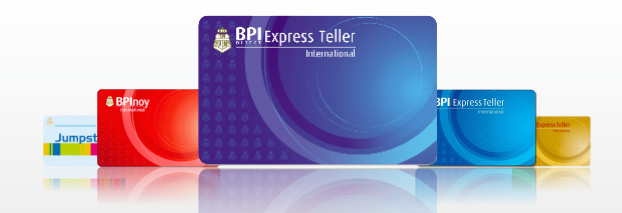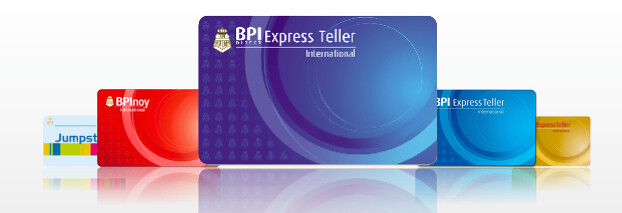Starting a business in the Philippines while abroad is a very tough decision to make for many OFWs. But there were many determined individuals who did have the guts to invest their hard-earned savings in starting a business even though they are away from home. Interestingly, many of these businesses even wrote their business plans and feasibility studies.
But why do many OFW businesses fail?
Many OFW entrepreneurs fail at their business endeavors not because they failed to take hold of the opportunities but mainly because they failed to prepare themselves and do the things that need to be done first.
Here are the 5 common mistakes that OFW entrepreneurs have made.
1. Lack of entrepreneurial spirit. Living or working abroad has become the comfort zone for many OFWs and migrants. They receive higher than the usual salaries. They have free housing allowances or even accommodations, transportation and meal allowances, free insurance benefits, free annual vacation airfare, paid vacations, and many other freebies and perks that many Filipinos back home do not usually receive.
That is why most of OFWs who decided to run their business ventures have later on realized that they have not prepared themselves emotionally and mentally for the this new chapter in their lives. A lot of them still carried the mindset and beliefs of an OFW employee. This lack of mental preparation has caused a lot of OFW businesses to fail.
Are you ready to leave your comfort zones as an OFW and become an entrepreneur in the Philippines?

2. Failure to identify talents, core skills, and passion.
Everyone has their own sets of skills and interests. However, many OFW business starters were not able to properly evaluate themselves to see if there are ways for them to make money from their strengths and core skills. One of the most successful businessmen in the country today is a former OFW by the name of Steve Tamayo.
He was able to bring with him his experience and expertise in the bar and restaurant industry and used that strength to start and run one of the most-sought after food catering services in the country, the Tamayo’s Catering. Furthermore, he loves what he is doing and enjoys serving his customers even more.
Reflect and think of just one thing that you love to do and begin from that passion. If you have that passion in a business that you like to enter, you will surely have the eagerness and determination to make things happen.
(Save and grow your money while you are still an OFW!!! CLICK here!)
3. Entering into a business not familiar with.
In a study conducted by the Economic Resource Center for Overseas Filipinos, 76% of businesses put up by overseas Filipinos failed not only because they lack the skills. Many of them failed because they were lured into business enterprises that they have no background about.
One of the interviewed is an who OFW played in a showband that toured the world for 10 years. A cousin convinced him to pay $3,000 for five hectares of fishpond. As the OFW also needed to leave for work abroad, he left the fishpond to his cousin. Expectedly the business failed because neither he nor his cousin was familiar with it.
In addition to this, many OFW’s lend their money to their relatives in hope that these relatives will be able to run the business successfully. But this practice contribute to the high rate of business failures among many OFWs.
If you want to try a business that is not based on your core skills, make sure that you have been into that business as an employee. You should have also attended the proper training and did proper research before even going back to the Philippines.
4. Failure to establish the business model.
Many OFW entrepreneurs have failed in their businesses because they were not able to develop their own creative business models. A fundamental segment of starting a business is establishing the business model that fits a venture.
Will you be a manufacturer? A distributor? A retailer? Or a franchisee? Your chosen business model will make up the structure on how you will provide value to customers and give you your desired revenue in the process.
Ask yourself, what are you offering to your customers? Are you offering your product or service to a specific market? How do you plan to reach them? Will your products or services bring good relationship with your customers?
Are you willing to network with other entrepreneurs? How will your business model give you profit? Will you be able to handle the costs of executing your business model?
If you are an OFW who has just started a business, you should seriously consider improving and innovating on different types of business models.
5. Failure to define and sustain their own mission and vision for their businesses.
Lastly, a lot of OFWs failed in their businesses because they have lost the motivation to succeed. Many of them have no clear purposes on why they are starting a business. As with any business, there should be a mission that should define a reputable cause such as serving with high quality service and contributing to poverty alleviation in a community.
A vision should also reflect goals and dreams. Many of those who failed in their business have lost focus on their goals and have given up their dreams. A vision should never die and must always excite the imagination and give more energy to make dreams a reality.
If you as a business owner with clear mission and vision statements, your employees will be more inspired to work because they know that they are a part of your ideals and worthy cause. You may even attract other investors to help you achieve your dreams if they see the value of your mission.
Knowing your mission and vision for your business must start within yourself. Do you believe that you have a purpose in your life? Do you see yourself achieving your dreams in the future? Do you want other people to see you as a person with clear goals and dreams?
If you are able to answer these questions with a resounding Yes, I believe that you will be able to find ways to make your business a successful one.
Are you an OFW who dream of having a successful business soon? Then make sure that you address these five common mistakes that most OFW entprereneurs have committed in the past before you pull out your money from your bank account or other investments.
Learn more about planning your business properly by subscribing to Rock To Riches for FREE.
—
If you want me to coach you in improving your finances, type your name and email below and click the Subscribe button:
Rock your way to abundance!
#moneyliferocknroll



